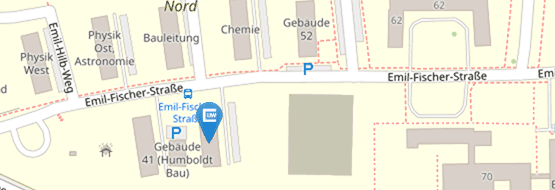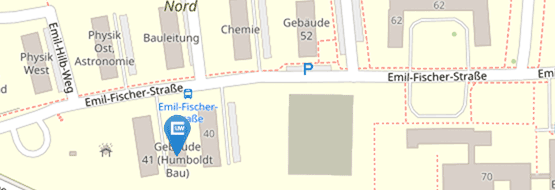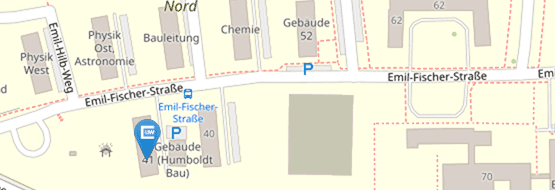Oberseminar "Mathematische Logik" - Dr. Sara Ayhan
Sense and denotation in systems for proofs and refutations
| Datum: | 28.10.2024, 16:15 - 17:15 Uhr |
| Kategorie: | Veranstaltung |
| Ort: | Hubland Nord, Geb. 40, 01.003 |
| Vortragende: | Dr. Sara Ayhan - Ruhr-Universität Bochum |
In this talk I will consider questions about sense, reference, identity and synonymy of proofs and refutations in a setting of bilateralist proof-theoretic semantics. Proof-theoretic semantics is an approach to the meaning of logical connectives claiming that this is not given by model-theoretic concepts but rather by the rules governing the use of connectives in inferences. Within the traditional, unilateralist picture these rules capture the provability conditions of the connectives. A bilateralist conception in proof-theoretic semantics, though, claims that provability conditions and refutability conditions should be taken on a par: both should be considered equally in determining the meaning of the logical connectives.
In this context there are two issues that will be addressed in this talk. Firstly, I want to give an account on how it is possible to distinguish between sense and reference of derivations in a spirit of proof-theoretic semantics. It is generally assumed that there can be different linguistic representations of the same underlying proof. In these cases it could be said - building upon Frege’s famous distinction - that they differ in sense but not in denotation. Next to this question, which concerns the identity of proofs, I will also give a conception of what constitutes the sense of derivations and thereby we will be able to make more fine-grained distinctions: not only can we give an answer to the question of when two derivations are identical but also to the question of when they must be considered synonymous.
Secondly, I will extend this to a bilateralist perspective and consider the relation between proofs and refutations in the context of such a Fregean distinction. Using my account about what constitutes sense and reference of derivations, I will argue, then, that in a system with rules characterizing both proof and refutation conditions of the connectives certain proofs and refutations can be seen as different ways of representing the same object, i.e., they would only differ in sense but not in denotation. Thus, such a view would yield the (from a bilateralist point of view) desired balance between proofs and refutations: they are considered as equal; neither concept is reduced to the other and no preference is given to one or the other.








